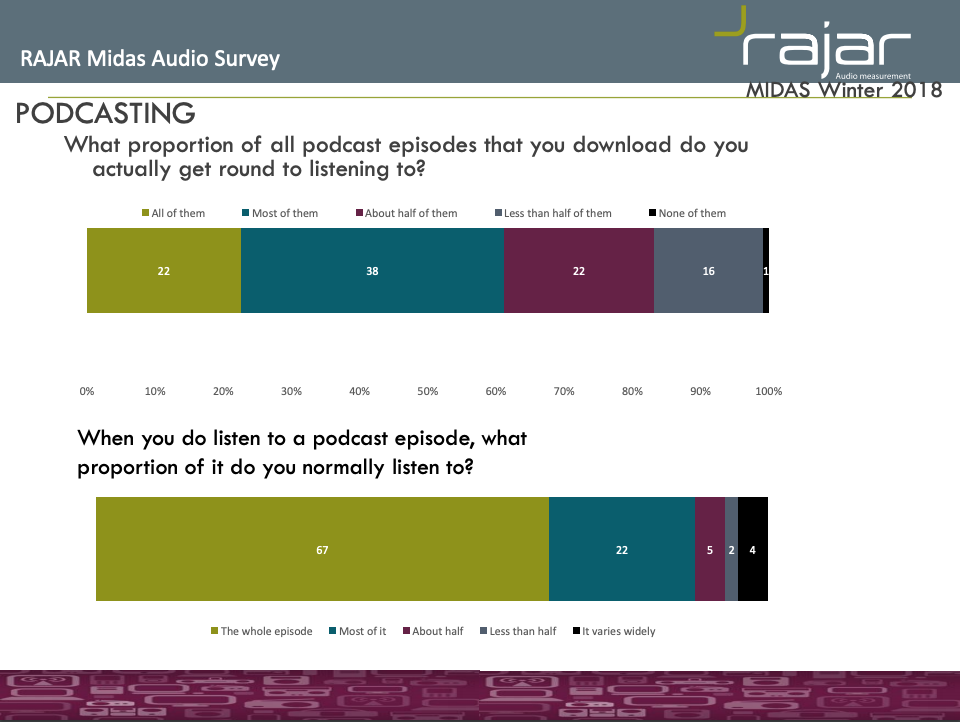Everybody loves a good story! From films to books, there are countless ways you can share with the world, but none are as easy as podcasts. Uploading and distributing content takes minutes, but structuring for an audio-based medium can be tricky. Whether you're converting blog posts, videos, or just a chat you've had with a friend, podcast storytelling is a great way for you to create engaging content to reach a whole new audience!
Starting Off Strong 💪
A really strong intro to your podcast is one of the main keys to podcast storytelling; Hooking your listeners in and making sure they keep listening. Make sure it’s succinct, engaging and to the point. Give them a teaser of what's going to be coming up in the episode without giving everything away. Take the first 10 - 20 secs of your podcast and try to condense an intro into this space, like this episode of Create Reach Inspire:
Make sure to include the following:
- Opening Music: To introduce your podcast every episode.
- Podcast Title: To remind your listeners of what they’re listening to.
- Hosts Names: Include the hosts names if it’s relevant. If not, leave this out.
- Podcast Theme: What is the podcast about overall?
- Episode Theme: What will you be talking about in this particular episode? But don't give it all away!
5 Ways to Structure Your Stories
It doesn’t matter what type of podcast you have going, there’s always some form of structure. This creates a sense of familiarity for your audience, which is always nice to have. Not to mention, it can also help you out when you’re working out what topics you want to focus on in your episode. Use a clear structure and you can’t go wrong.
Time for another handy list! Here are 5 common elements of a good structure for good podcast storytelling:
- Setting: Either an actual fictional setting for an audio drama, or perhaps a background story preparing the listeners for an interview, or maybe a spooky intro for a paranormal podcast!
- Characters: This could be the host and any guests, or it could be actual fictional characters for an audio drama.
- Plot: The overall goal or point of the entire episode. So maybe you have a talk show and this episode is about overcoming a personal struggle. This is your plot.
- Conflict: A clash or some part where questions are raised. In a talk show set up, this could be presenting the alternative point of view to the Plot.
- Theme: The overarching ideas or ethos of the whole podcast. The end message usually ends up focusing in on this.
Re-engaging Your Audience
In a recent RAJAR survey, they found that around 67% of podcast listeners stick around until the very end of an episode. That’s only just over half! That’s why doing shorter episodes can really help your podcast listening figures. If you still want to do longer episodes, maybe break them down into shorter, more manageable chunks? This is where your structure will come in handy!

Listener Feedback is Gold Dust ✨
Nobody is 100% perfect, so listen to your audience. If something isn’t working, don’t be afraid to change it. Ask your audience what they’d like to see done differently. They will feel appreciated and included, and you get excellent feedback directly from your audience about what would make them listen for longer and maybe even donate some money to your podcast.
Try new things, but also be ready to admit when something isn’t working. Take the long-running podcast An Hour With Your Ex:
I've been podcasting for 10 years! All I got out of it was incredibly comfortable underwear, reasonably priced flowers, 3 square meals a week delivered to my door, my best friends, a chance to talk to some incredible people, and my wife. I would encourage everyone to try failing at podcasting!
Mark Colomb, An Hour With Your Ex Podcast
Podcast Storytelling: Share Your Story
Podcasts are quickly becoming the number one platform for telling and sharing interesting stories with the world. Got a story to share? Why not consider starting a podcast to get your message out there?









